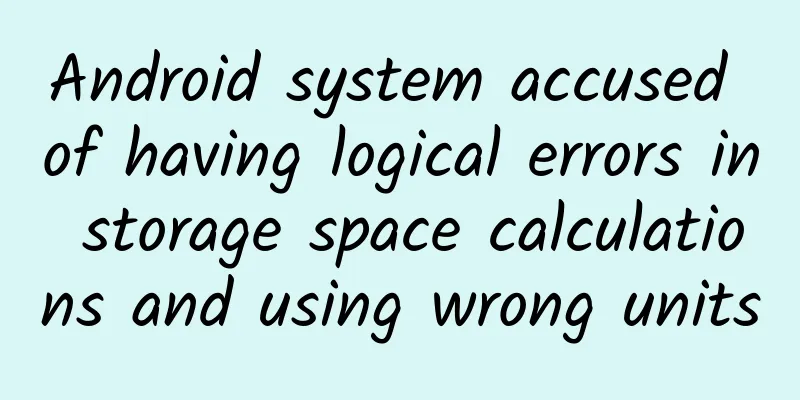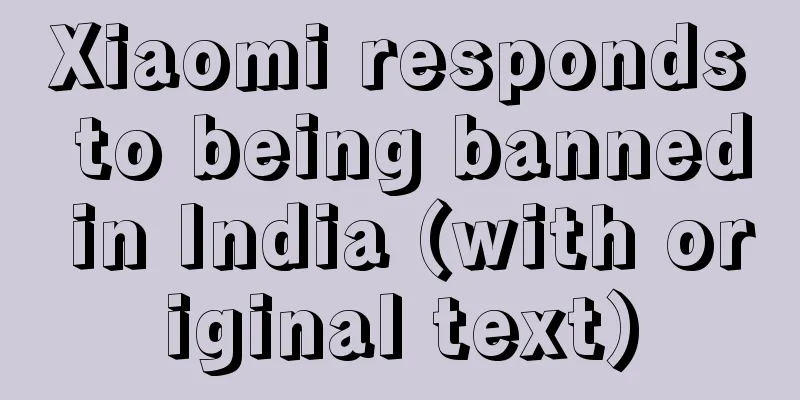Android system accused of having logical errors in storage space calculations and using wrong units

|
In recent years, the storage space of Android phones has increased significantly, and many manufacturers have stopped producing low-capacity models with 64GB, partly because the storage space required by the Android system and applications has also increased. However, the Android system has serious errors in calculating the storage space occupied by system components and uses non-standard units. We usually use the storage usage feature of the Android system to find out the apps and files that take up a lot of space so that we can uninstall or delete them when necessary. However, Android expert Mishaal Rahman found that Google's calculation of the space occupied by Android system components is flawed. Rahman executed a shell command to create a 3GB file in the /data/media/0 storage directory, which is not used to store Android system files. However, the storage space analysis of the phone showed an increase of 3GB of space under the system category, indicating that the system has suddenly become larger. This is because Android counts everything except other categories (including audio, video, pictures, documents, recycle bin, and games) as system space. Android 14 This flawed logic was also used to calculate storage usage. In addition, the File Manager app also showed a similar increase in system component storage usage, likely because it used the same untrustworthy calculation method. Other Android-based UIs also had the same incorrect storage space calculation issue, but Samsung has reportedly fixed the issue in the One UI 6 update . After running the same ADB command as in the previous experiment, Rahman confirmed that the increased space usage was displayed under the Other Files category, not the System category. IT Home noted that Rahman also pointed out another small but important problem, that is, Android uses different units when calculating storage usage and smartphone manufacturers advertise storage capacity. Most people think that mobile phone storage capacity is measured in bytes, which can be expressed as an exponential power of 10. There are 1000³ bytes in a gigabyte (GB), and smartphone manufacturers also advertise storage capacity in gigabytes. Android measures storage space in gigabytes (GiB), which is 1024³ bytes, because it is expressed as an exponential power of 2. Therefore, 1GB is equal to 0.93GiB . Due to this unit difference, smartphone users may think that the Android system installed on their phones takes up more GB than it actually does. Coupled with incorrect storage usage calculations, ordinary Android users may think that the project takes up more storage space than it actually does. Google needs to correct Android's calculation logic for the storage space occupied by system components and quantify all content using the GB unit that consumers are familiar with, which is also the unit used by all smartphone hardware manufacturers. |
>>: iOS 16.6.1 official version is released, it is recommended to upgrade!
Recommend
How to use Traffic Treasure? Is Traffic Treasure useful for increasing traffic on the website?
For online marketers, consultation and transactio...
QQ will launch a new feature to create a unique QID
On November 19, it was reported that QQ is curren...
WeChat Index is here, how to use it well is limited only by your imagination
Recently, WeChat launched the " WeChat Index...
How does Tik Tok make money? Detailed explanation of Douyin operation and traffic generation strategy!
Many people may now ask: Can Douyin continue to o...
What are the functions of Lanzhou’s elderly care mini program development? How much does it cost to make a mini program?
At present, the elderly population in my country ...
Q3 China’s mobile phone market retention rate announced, who will take the initiative in the 5G era?
On November 18, mobile big data service provider ...
2020 College Entrance Examination Volunteer Application Process College Entrance Examination Volunteer Application Skills and Methods
Recently, the 2020 college entrance examination r...
Master Fang Wenshan shares his lyrics writing course
Master Fang Wenshan responded that he is the best...
"Superkids Season 1" Baidu Cloud Download Link Address
Welcome to Aixue Knowledge Network, where you can...
How to quickly improve website rankings? How to quickly improve keyword rankings?
Friends who study SEO know that after learning SE...
HR Practical Analysis Member Baidu Cloud Download
Human Resources Practical Analysis Member Resourc...
How to write an attractive activity proposal?
Years ago, I planned and organized a community ev...
How does bidding reduce costs? Bidding promotion method to reduce costs!
Some time ago, someone asked the editor in the gr...
Creative interpretation and placement strategies of WeChat Moments advertising cases
There are two types of advertisements for WeChat ...
In terms of privacy protection, what two changes did iOS 14.5 make?
Every day we use our phones, every word you click...









